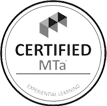Team Conflict Management
 In-Person/Online
In-Person/Online
 2 Days
2 Days
 English/Arabic
English/Arabic
Learning Objectives
![]() Identify the conflict and what conflict resolution means.
Identify the conflict and what conflict resolution means.![]() The 3 Elements of Communication and High-Performance Team.
The 3 Elements of Communication and High-Performance Team.![]() Form a cohesive unit within the organization and create interdepartmental cooperation and trust.
Form a cohesive unit within the organization and create interdepartmental cooperation and trust.![]() Discuss the impact of Strategic Disputes Management.
Discuss the impact of Strategic Disputes Management.![]() Identify the five main styles of conflict resolution.
Identify the five main styles of conflict resolution.![]() Explore how Emotional Intelligence (EQ) is relevant to managing conflict.
Explore how Emotional Intelligence (EQ) is relevant to managing conflict.![]() Master communication tools such as the agreement frame and open questions.
Master communication tools such as the agreement frame and open questions.
 In-Person/Online
In-Person/Online  2 Days
2 Days
 English/Arabic
English/Arabic
Learning Objectives
![]() Identify the conflict and what conflict resolution means.
Identify the conflict and what conflict resolution means.![]() The 3 Elements of Communication and High-Performance Team.
The 3 Elements of Communication and High-Performance Team.![]() Form a cohesive unit within the organization and create interdepartmental cooperation and trust.
Form a cohesive unit within the organization and create interdepartmental cooperation and trust.![]() Discuss the impact of Strategic Disputes Management.
Discuss the impact of Strategic Disputes Management.![]() Identify the five main styles of conflict resolution.
Identify the five main styles of conflict resolution.![]() Explore how Emotional Intelligence (EQ) is relevant to managing conflict.
Explore how Emotional Intelligence (EQ) is relevant to managing conflict.![]() Master communication tools such as the agreement frame and open questions.
Master communication tools such as the agreement frame and open questions.
Modules
Module 1: Understanding the Nature of Conflicts
- Understanding emotions & attitudes relevance to conflicts
- Types of conflicts (Are all conflicts bad?)
- Psychological difficulties and triggers to conflicts
Module 2: What Is True Interdepartmental Collaboration?
- The three types of organization structures: functional; matrix; project oriented
- The silo mentality and how to be a Silo buster
- How do we change the silo culture?
- Collaboration and its importance in today’s diverse globalized economy
Module 3: Team Conflict Competence Model
Organizational conflict management competence model
The cost of conflicts (Strategic equations)
Discover your conflict style (Thomas Kilmann)
Module 4: Conflict Escalations and Forms
- Interventions forms and impacts
- Destructive behaviors
- Conflict games
Module 5: Strategic Disputes Management
- Constructive conflict engagement behavioral elements
- Getting to the root cause
- Generating options
Module 6: Conflict Resolution Process
- Creating trust with open communication
- The 8-steps method for team agreements
- Formulas for preventive conflict based culture
- Role of emotional intelligence in conflict resolution
- Role of communication in conflict management
- Control your emotions before they control you
- Creating an effective atmosphere
- Creating a mutual understanding
- Focusing on individual and shared needs
- The agreement frame
Our Partners





